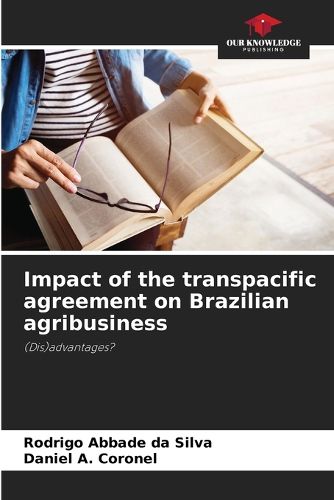Readings Newsletter
Become a Readings Member to make your shopping experience even easier.
Sign in or sign up for free!
You’re not far away from qualifying for FREE standard shipping within Australia
You’ve qualified for FREE standard shipping within Australia
The cart is loading…






The impacts on Brazilian agribusiness of the formation of the Trans-Pacific Trade Preference Agreement (TPP) were analysed. To this end, we analysed not only the changes in the economy when all tariff barriers are eliminated, which characterises the formation of a free trade area, but also the elimination of tariff barriers together with the elimination of subsidies between the regions of the agreement. To this end, the Global Trade Analysis Project (GTAP) General Equilibrium model was used. The results indicated that, in the first scenario, most of the economic impacts on Brazilian agribusiness would be negative, mainly damaging the meat, corn, wool, processed food and rice sectors. The wheat, oilseed and vegetable sectors would suffer positive impacts. On the other hand, in the second scenario, the impacts on Brazilian agribusiness would be more significant in the wheat, vegetable, oilseed and fruit sectors, with the Brazilian agricultural producer and exporter sector being positively influenced.
$9.00 standard shipping within Australia
FREE standard shipping within Australia for orders over $100.00
Express & International shipping calculated at checkout
The impacts on Brazilian agribusiness of the formation of the Trans-Pacific Trade Preference Agreement (TPP) were analysed. To this end, we analysed not only the changes in the economy when all tariff barriers are eliminated, which characterises the formation of a free trade area, but also the elimination of tariff barriers together with the elimination of subsidies between the regions of the agreement. To this end, the Global Trade Analysis Project (GTAP) General Equilibrium model was used. The results indicated that, in the first scenario, most of the economic impacts on Brazilian agribusiness would be negative, mainly damaging the meat, corn, wool, processed food and rice sectors. The wheat, oilseed and vegetable sectors would suffer positive impacts. On the other hand, in the second scenario, the impacts on Brazilian agribusiness would be more significant in the wheat, vegetable, oilseed and fruit sectors, with the Brazilian agricultural producer and exporter sector being positively influenced.